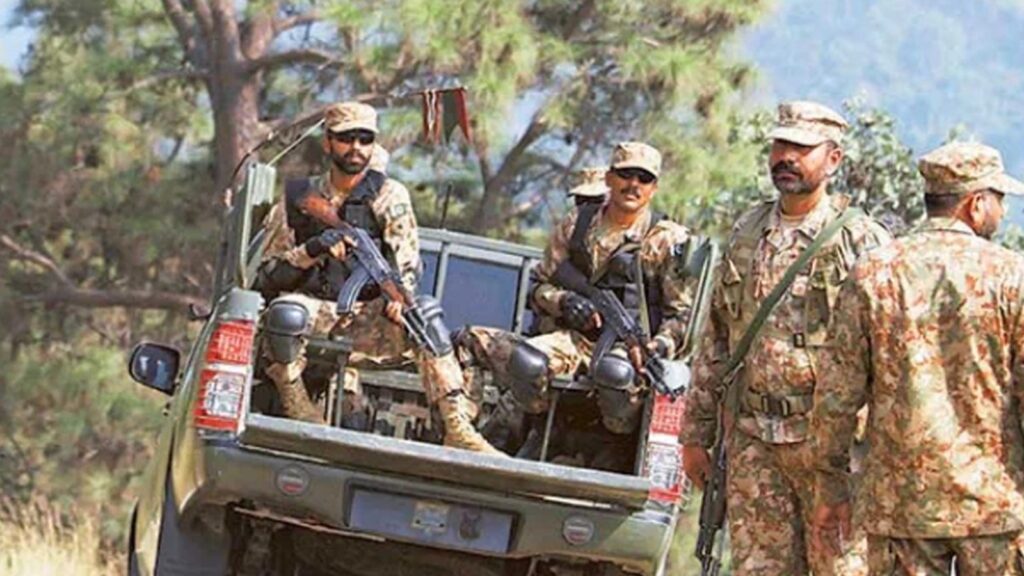Despite a surge in terrorism-related violence in the first half of 2025, security forces in Khyber Pakhtunkhwa (KP) have intensified counterterrorism operations, successfully confining militant activity to a handful of districts along the Afghan border. Official figures indicate that the province experienced 756 terrorism-linked incidents in the first six months of the year, including five suicide bombings, 80 improvised explosive device (IED) blasts, 12 missile strikes, and 35 grenade attacks. A staggering 269 gunfire assaults targeted law enforcement and government personnel, reflecting the scale of the threat.
The epicentre of militant activity remains concentrated in volatile districts such as North Waziristan, South Waziristan, Dera Ismail Khan, Lakki Marwat, Karak, Orakzai and Mohmand. However, coordinated intelligence-based operations (IBOs) carried out by the Pakistan Army, Frontier Corps, and police have dealt significant blows to terrorist networks. In a major offensive between April 25 and 28 April, 71 militants attempting cross-border infiltration into North Waziristan were neutralised. On April 27 alone, 15 terrorists were killed in separate operations across Karak, Gomal Zam, and North Waziristan.
Security officials also reported a successful preemptive strike that eliminated 54 militants attempting to cross the border earlier that month. In March, a province-wide operation spanning 15 districts led to the elimination of 158 militants—40 in North Waziristan, 25 in DI Khan, and dozens more in Mohmand, Mardan, and Bannu. January and February saw similarly robust action, with at least 43 militants killed in operations across Lakki Marwat, Khyber, Karak, and DI Khan.
Though incidents of violence continue to rock Peshawar—where 19 terrorism incidents including three suicide attacks and seven IED blasts claimed 42 lives this year—security forces say their recent actions have disrupted terrorist supply lines, recruitment networks, and safe havens. Officials confirm that many insurgents have fled or been forced into hiding within shrinking pockets of resistance.
Military and provincial authorities are also crediting the recently launched Provincial Action Plan with driving coordinated response efforts. The plan includes 84 security, judicial, and administrative measures ranging from modern training and new recruitments to weapons procurement, inter-agency intelligence sharing, and upgraded prosecution capabilities.
Speaking after a high-level security review, KP Chief Minister Ali Amin Gandapur commended the sacrifices of the armed forces. “Our personnel have displayed unmatched bravery, particularly in Karak and other high-risk areas. Their resolve is turning the tide,” he said.
Despite the successes, challenges persist. A June 28 suicide bombing in Mir Ali claimed the lives of 16 soldiers and injured 29 civilians. Similarly, the February 28 blast at Darul Uloom Haqqania in Nowshera killed eight and injured 20. These attacks underscore the urgent need for continued vigilance and systemic counterterrorism reforms.
Nevertheless, security experts believe the tide is slowly shifting in KP’s favour. “Militants are no longer operating freely across the province. They’ve been cornered and are on the defensive,” said a senior military analyst in Peshawar. “The operational momentum, if sustained, could deliver a decisive blow in the coming months.”
As the province braces for the second half of 2025, the people of KP remain hopeful that the ongoing sacrifices and efforts of their security forces will restore long-awaited peace and stability across the region.





